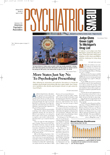The National Institute of Mental Health (NIMH), in collaboration with the National Center for Complementary and Alternative Medicine (NCCAM) and the Office of Dietary Supplements, is funding a new clinical trial to look again at the effectiveness of St. John’s wort in treating depression.
The multicenter, $4 million study, will look at the effectiveness of the herbal remedy in patients with minor depression, rather than major depression. Many of the more recent, large clinical trials on the herb for major depression have shown it to be largely ineffective; however, results have hinted that for patients with less-severe symptoms, the herb might indeed be effective.
NIMH will recruit 300 participants at three centers—Massachusetts General Hospital, Cedars-Sinai Medical Center in Los Angeles, and the University of Pittsburgh Medical Center. Patients with minor depression will randomly be assigned to receive either a standardized extract of St. John’s wort, the SSRI citalopram, or placebo in a 12-week, double-blind trial.
Researchers will look for changes in patients’ symptoms, functioning, and quality of life. Those who show no improvement will be switched to the active treatment they had not been assigned to before, while patients who improve will continue to take the originally assigned treatment for an additional 14 weeks, for a total trial duration of 26 weeks.
“If the trial demonstrates that citalopram or St. John’s wort benefits patients with minor depression, it will expand our understanding of this underrecognized mood disorder and offer new evidence-based treatment recommendations for either primary care or mental health clinicians,” said Matthew Rudorfer, M.D., associate director of treatment research for NIMH’s Division of Services and Intervention Research.
“There is high public interest in herbal remedies for depression,” added NCCAM Director Stephen E. Straus, M.D. “Our intent is to study St. John’s wort for the spectrum of depressive conditions for which the public considers its use. This new study extends our earlier research efforts from the more-serious form of depression to a clinically less-serious one, yet one that is, in fact, of considerable public health significance.”
The study will enroll men and women aged 18 to 85 who have experienced depressive symptoms for at least six months, but less than two years, continuously without meeting criteria for either a major depressive episode or dysthymia within the last year. Individuals with comorbid mental disorders, such as schizophrenia, anxiety, and substance abuse disorders, will be excluded from the study, as will persons with active cardiovascular, renal, endocrine, neurological, and certain blood disorders.
Participants will receive an initial screening and will be withdrawn from any psychotropic medications at baseline. They will then be followed every two weeks. At baseline, week 12, and week 20, participants will also have blood drawn for laboratory tests.
More information on this and other NIH clinical trials is posted on the Web at www.clinicaltrials.gov. ▪
